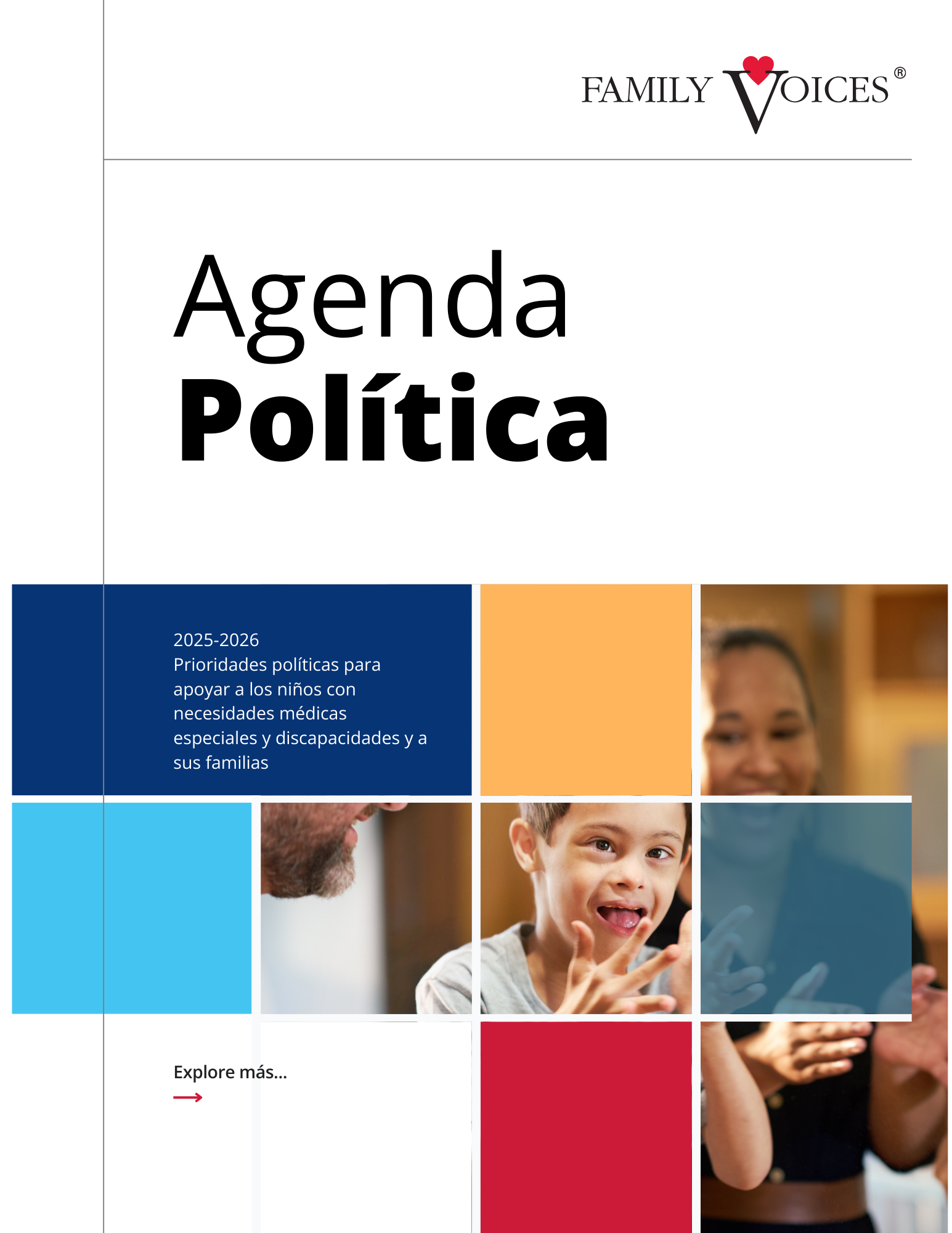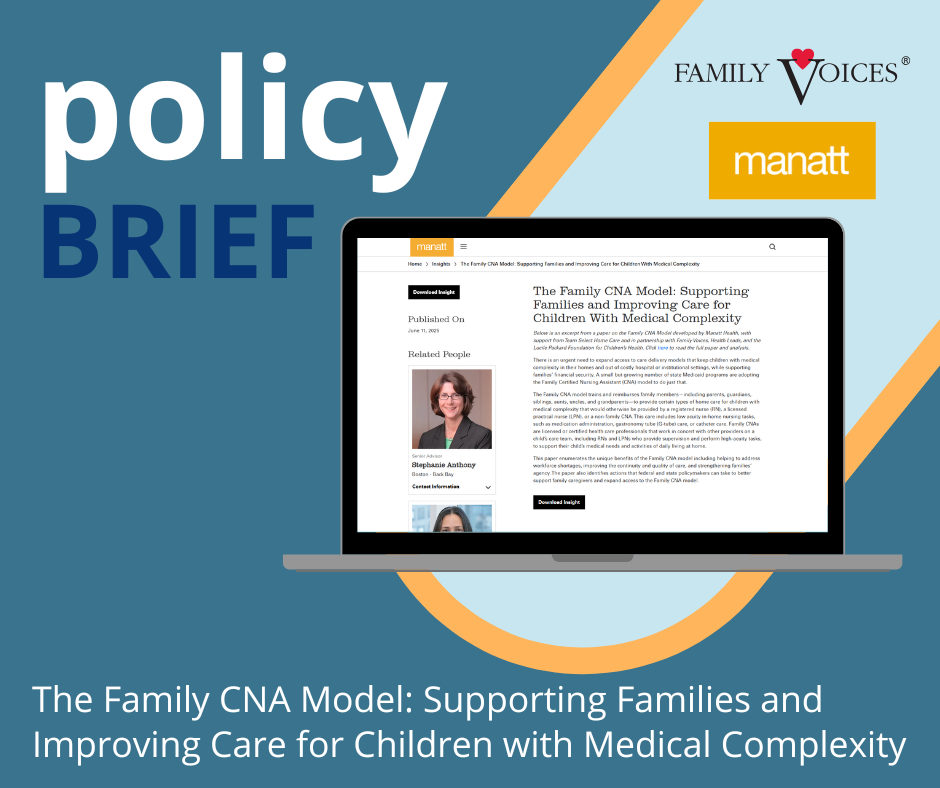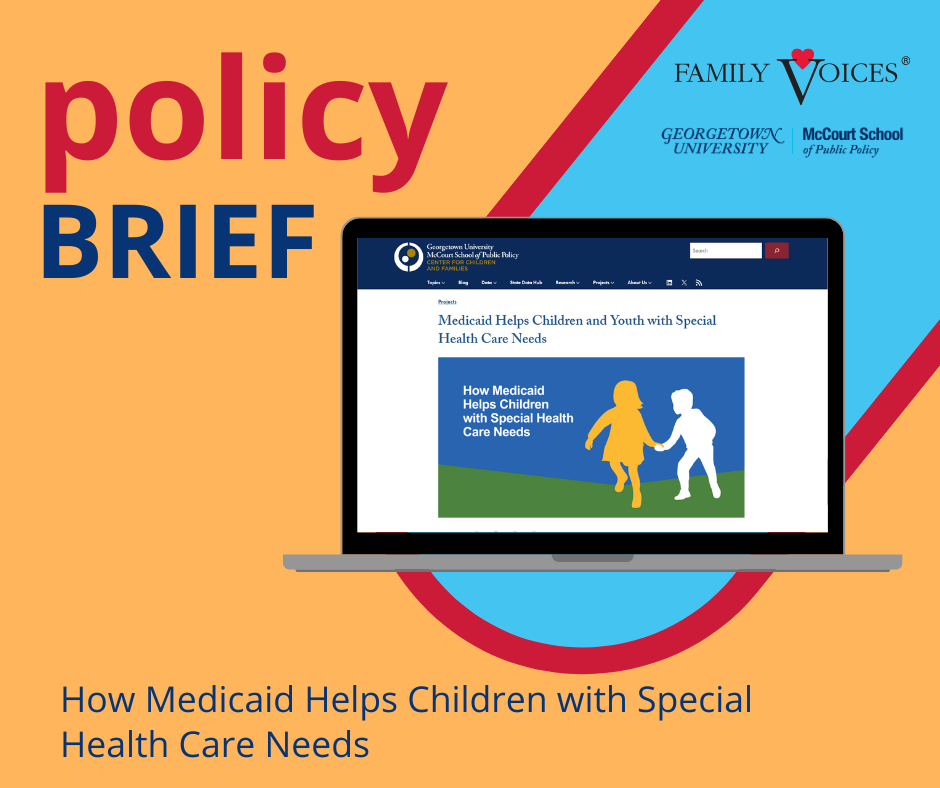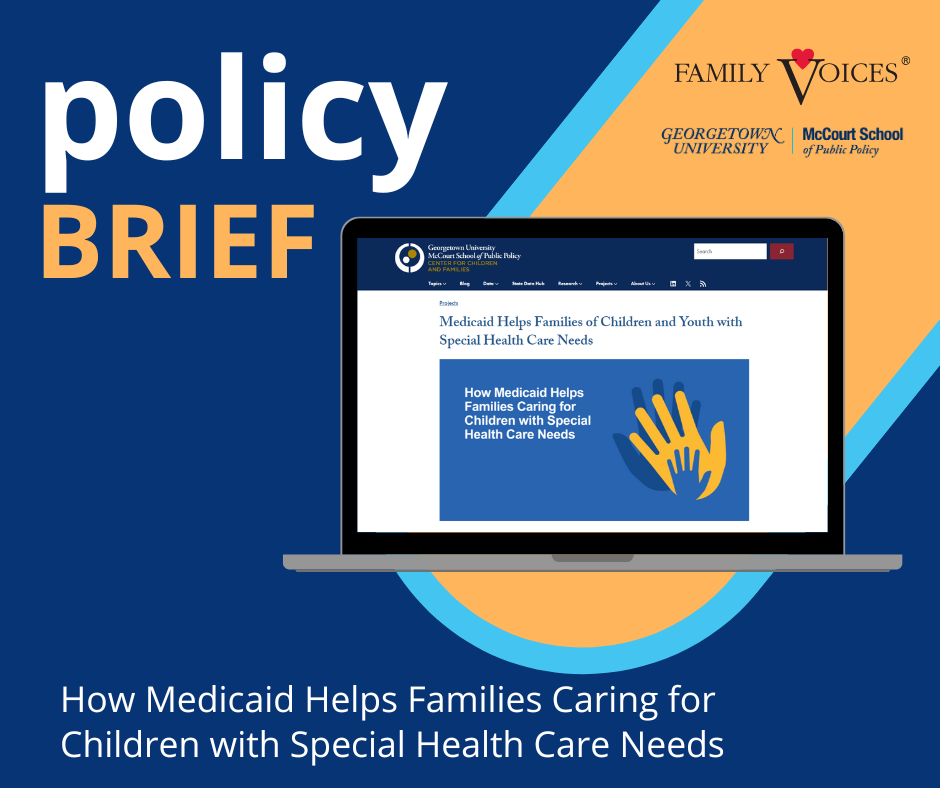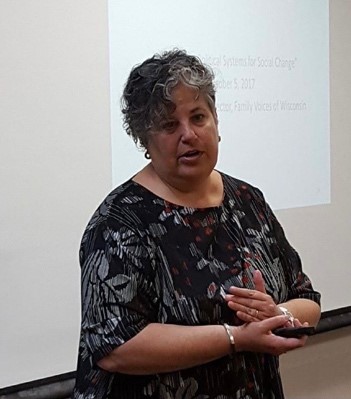
Public Policy
Policy Priorities to Support Children with Special Health Care Needs and Disabilities and Their Families
Our Strategic Policy Priorities
Children and youth with special health care needs and disabilities, and their families, face systemic barriers and biases that impede their ability to experience their best possible lives. Systems of care do not respond to their needs holistically or facilitate access to supports that enhance their quality of life.
To make the most impact, we focus our policy actions across all levels of government – federal, state, and local. We work with our family and organizational partners to lean on the various levers of policy change through education and advocacy.
Our current policy agenda includes:
- Expand access to peer-to-peer support for families of children and youth with special health care needs
- Support and expand Medicaid coverage for children and youth with special health care needs and their families and caregivers
- Improve the transition to adult health care for youth and young adults with disabilities and their caregivers and families
- Eliminate language access barriers
Family Voices collaborates with national child health and disability organizations, such as the Consortium for Citizens with Disabilities, The Arc, Autism Speaks, the American Academy of Pediatrics, and other groups.
Recent Policy-Related News
Nuevos recursos y oportunidades – Septiembre de 2025
Echa un vistazo a los recursos y oportunidades que ofrecen Family Voices y nuestros socios. Los recursos del equipo de políticas de Family Voices están disponibles en inglés y español y se están desarrollando versiones en otros idiomas. Los recursos de nuestros socios...
Lista de próximos eventos – Septiembre de 2025
Para más información, inscríbase en todos los eventos que se celebrarán tanto de forma virtual como en todo el país. 1 de octubre de 2025 a las 10:30 a. m. PT – Obtenga más información e inscríbase en Trastornos por consumo de sustancias (SUD, por sus siglas en...
Upcoming Events List – September 2025
Learn more and register for all the events happening both virtually and across the nation. October 1, 2025 at 10:30 AM PT – Learn more and register for Perinatal Substance Use Disorders (SUD) 101. This is a virtual introduction to perinatal SUD training hosted by the...
Financiación gubernamental: ¿Resolución de continuidad o cierre?
El Congreso volvió a reunirse a principios de este mes para abordar un tema importante: la financiación gubernamental. Durante las últimas semanas, gran parte del debate se ha centrado en la aprobación de una resolución de continuidad (CR) limpia y a corto plazo o en...
Septiembre de 2025 Estado de la reautorización F2F: posible resolución de continuidad
Los F2F se financian a través de la resolución de continuidad (CR, por sus siglas en inglés) hasta septiembre de 2025. Si en septiembre de 2025 se aprueba otra resolución de continuidad, se espera que se incluya la financiación de los F2F. Family Voices sigue...
Legislation
The legislation tracked below is for informational purposes only. It is not meant to be an endorsement for or against the legislation. Action updates may occur daily, if actions are taken by Congress. Newly introduced legislation will be added weekly.
The legislative tracker is sorted by latest action. To navigate this page, you can scroll through just as you would a normal webpage. You can also click Ctrl+F on your keyboard and type in the search box.
For additional information and to read the full text (if available), click the highlighted bill number. You can also navigate to Congress.gov and search using key terms or phrases, or the bill numbers listed below.


